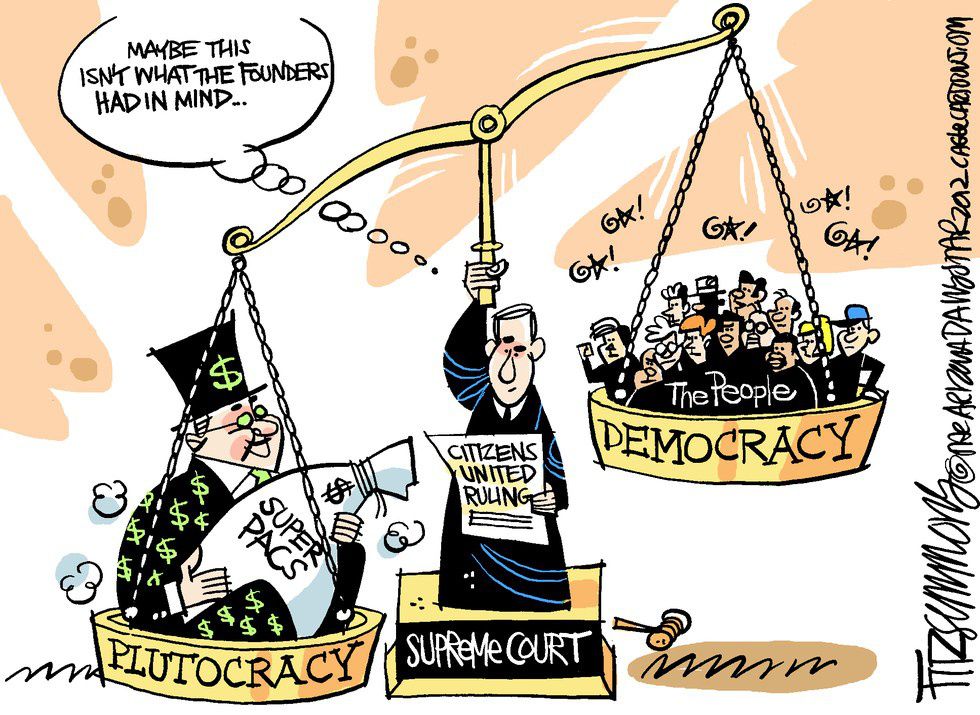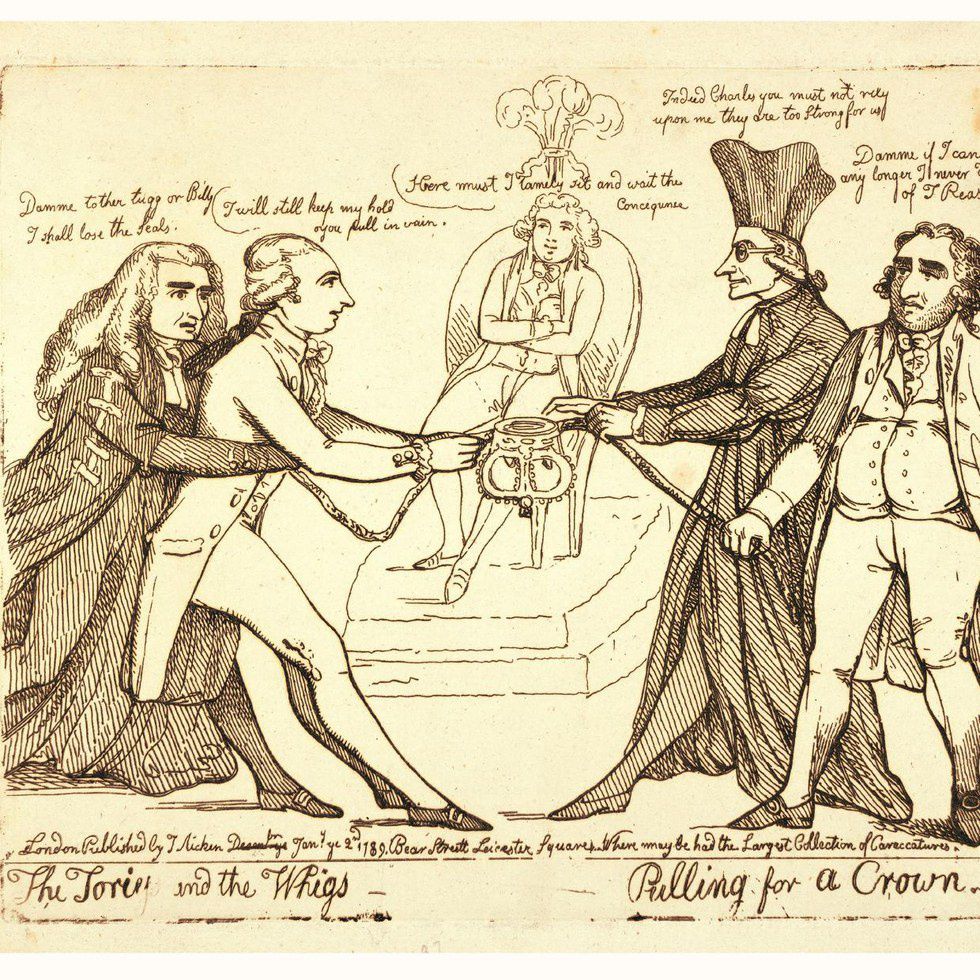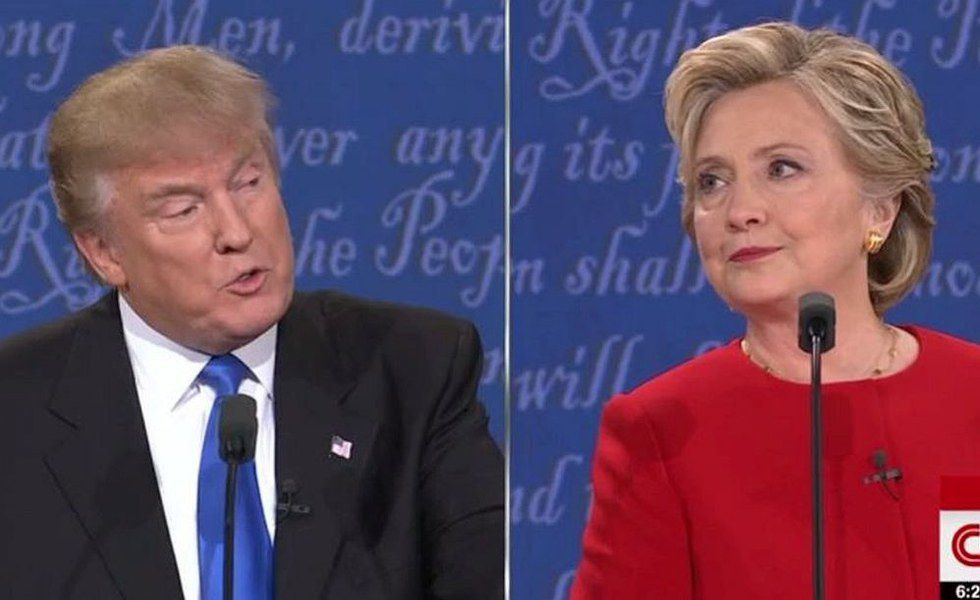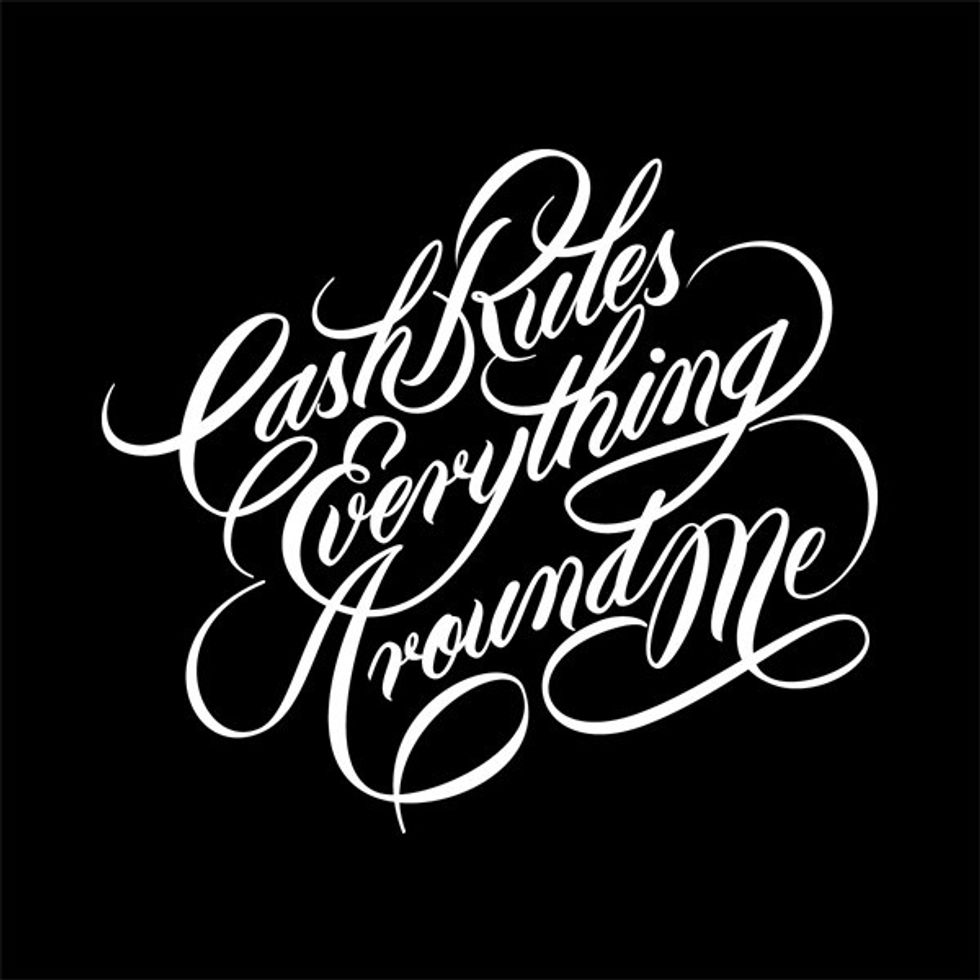When we think of the United States government, we think of democracy: the first of it’s kind, we the people, it’s a free country type of sentiment. Of course it’s natural to have some sense of pride, patriotism, or nationalistic feelings for the place you come from or belong to, but this pride often clouds critical thought. It’s healthy to shake that off once a while and consider the state of things as they appear from a current and historical standpoint. The reality of our governmental system and how it compares to the democratic sentiment we place on it don’t see eye to eye.
This is why I want to discuss how I decided we sound more like a plutocracy than a democracy.
First, let’s define it.
Google defines plutocracy as “a country or society governed by the wealthy.” What this means is that the wealthy--who generally have access to more resources and thus have more influence over people who need these resources--use their wealth to manage the society they live in rather than blow it all on Twinkies, booze and trips to Hawaii. It seems like something any of us would do if we had more money than we knew what to do with. Personally, I would donate to educational arts programs and support my favorite local candidates. This is always well-intended until it’s done systematically and on such a scale that it overshadows any influence that a poorer individual may have.
“Well, this isn’t us,” you could be saying now. “We all vote and we all donate our time and money if we have it to causes we believe in.” This is true, yet it's made irrelevant due to lobbying and influence of the rich, the votes or preferences of the bottom 90% do not make a difference. The influence of those with more resources goes much deeper than that, however.
It stems from our very formation.
Take a look at opposing factions in England in the 17th century (we did come from England, you know). Whig was a term coined to represent those who wished to abolish the current trend of hereditary succession of the throne in opposition of James II. They were the rebelling group. Tory was a term used for those who supported the hereditary succession and wanted to keep things as they were.
Of course all political parties change over time, and under Queen Anne, Whigs drifted further off the map of monarchy and hereditary succession. They became associated with the aristocratic land-owning families and “the financial interests of the wealthy middle classes.” When Queen Anne died, George I came to the throne as a supporter of the Whigs. So for 50 years after this influence, aristocratic connections ruled formally and informally over the government. This went on for so long that the Tories disbanded organizationally and only existed in leftover traditions. During this time in political history is when we began crossing the sea to inhabit the Americas in tens of thousands. And guess what? We had taken this Whig mentality across the Atlantic with us.
While this may seem like a distant and irrelevant history lesson, this mentality is very much still a part of our everyday lifestyle. We would never dream of the role of President being passed down by hereditary succession. We elect by ability--ability based on and proven by the ability to gain wealth. This wealth seems to serve as proof that the person will be capable of proper governing.
Take a look at the debate from last Monday.
Hillary Clinton and Donald Trump shouted over each other for one hour and 37 minutes last week. So much of that discussion was centered on the economy and the financial standing of both the country and our potential leaders. Money and money management is one of the most important factors to our candidates and our voters.
It’s also important to note that any candidate who reaches the top two podiums is without a doubt considered “wealthy.” With the nature of our campaign system, those who are any less don’t make the cut. Unfortunately our legislative branch is the same way: those in Congress make $191k a year. Those working for the Supreme Court make over $200k. No one ruling our country is in poverty or even near the median salary for Americans.
Money is respected beyond all else outside of politics as well.
Obtaining wealth dominates our pop culture by way of our icons, our creative products like radio songs, and our goals as individuals. Who do you know who doesn't want to buy a house with a big yard and have money to spare? What rapper doesn't write about getting money? Our culture is saturated with the desire to get paid, buy influence, and be successful through that. What's respected and lusted for more than success?
Money brings power, we all know that. So why is it tough to think that those with the most money have the most power over our government?
It's clear that only those with money are heard by our government, only the rich are ruling, and only the wealthy are respected. That sounds exactly like a plutocracy to me.


























